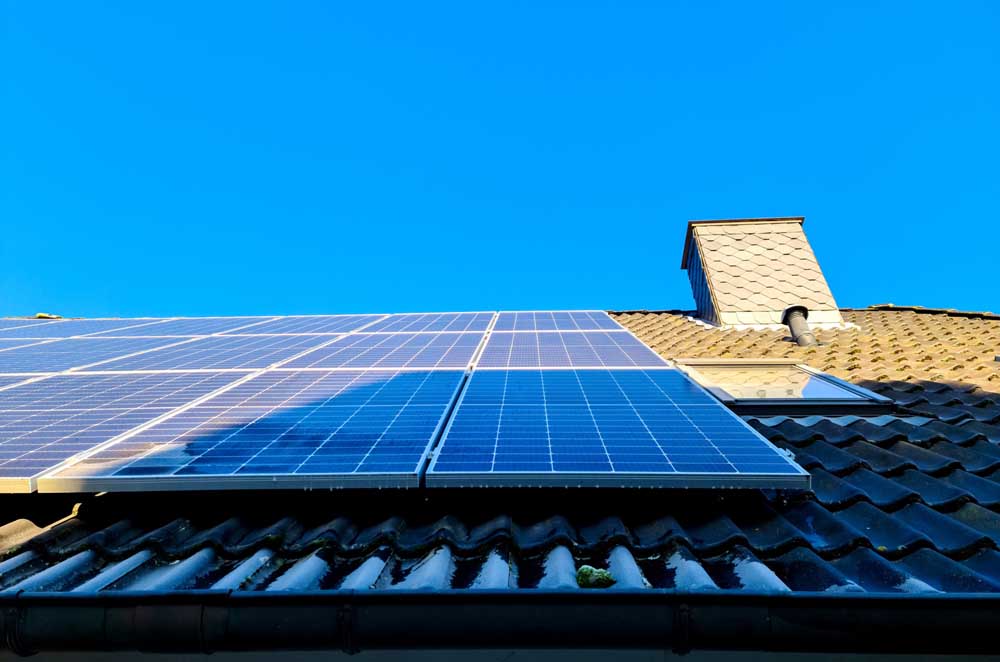Guest Column: Solar power could help your home in power shutoffs
Published 9:00 pm Tuesday, August 13, 2024

- Solar panels
You’ve probably noticed that much of Oregon is on fire. A cluster of wildfires burning to the southwest of Bend has brought smoke into town nearly every day over the past few weeks. It’s not just Central Oregon, either — the Durkee Fire in East Oregon grew to one of the largest in the nation, at 294,000 acres. The Oregon Department of Forestry recently reported that one million acres have burned in recent wildfires across the state.
Having been born and raised in Oregon, I’ve seen summers in our area get hotter and more wildfire-prone. Unfortunately, fire season is our new reality. This is concerning, not only due to the loss of forestland and property or even poor air quality, but these fires present another risk: potential power shut-offs during peak summer heat. I’m the sales manager for E2 Solar in Bend, and I’ve seen these shut-offs occur more frequently in fire-prone communities like ours. This is why, if you have a home in Central Oregon, a solar system and battery storage is a smart way to increase your resilience in the event of an unstable grid.
Trending
It’s not uncommon for utility companies to shut off power in certain areas during hazardous weather conditions. Pacific Power’s website says these power shut-offs are proactive, ensuring public safety and protecting first responders. And, when wildfires get too close to their equipment, Pacific Power will perform “emergency de-energizing,” shutting off power to lines to reduce wildfire risk. (Earlier this month, more than 9,000 Bend customers received an alert that they would lose power due to emergency repairs. The Oregon Office of Emergency Management has also advised residents to be prepared for potential wildfire-related power outages.)
But shutting off power for more than a few hours can put vulnerable populations at risk, especially when temperatures reach 90 degrees or higher. Even if you don’t depend on critical services, many of us rely on the power grid in other ways — like keeping our kitchen appliances running. Many aren’t prepared to replace a refrigerator and freezer full of food. (I’m not. Have you seen the price of groceries lately?) Also, many in the Bend area work remotely or run businesses from home, and an extended power interruption can keep technology offline, resulting in lost revenue.
If you don’t have a backup plan in the event of a power interruption, now’s a good time to put one in place. A generator can be a supplemental solution for some households. However, generators are prone to leakage and other malfunctions if not properly maintained. They’re also dependent on fuel, which makes generators costly to run and vulnerable to shut-down gas lines or closed roads (limiting the transport of fuel trucks). Additionally, most residential generators produce emissions (more nasty air), are notoriously noisy, and may overheat in extreme temperatures.
On the other hand, a solar system with battery backup is a more reliable, long-term solution — allowing homeowners to generate and store excess energy for use during outages. I’ve seen quality solar panels last 25 years or more, and quality battery backup systems are more reliable than ever with excellent product warranties. (Warranties vary between companies, so you’ll want to do your research here.) The cost of a solar system may be higher on the front end than that of a generator, but it qualifies for a 30% federal tax credit. (A generator doesn’t.) Solar also offsets electricity charges so it often pays for itself in under ten years. If you generate excess renewable energy, you can even sell electricity back to the grid.
As uncertain and extreme weather events continue in Oregon, our local communities are more vulnerable to wildfire — making energy independence crucial. Given the increasing fire risks in Oregon, installing a solar system with battery storage is a good idea for any household wanting to increase its resilience.
Trending
Editor’s Note
Do you have a point you’d like to make or an issue you feel strongly about? Submit a letter to the editor or a guest column.








